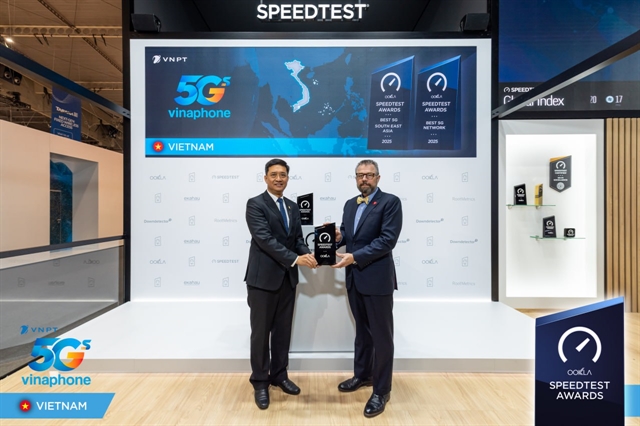 Expat Corner
Expat Corner

By Lê Hương
Maybe what you like is not really all that you need. It’s an intuition that makes perfect sense in almost any context: candy and alcohol are great, but too much of either is sure to lead to ruin. But in the digital space, it seems like an inviolable rule: give the user whatever they like.
From Skapa, an AI tech company that was founded in 2020, Chief Technical Officer (CTO) and machine learning practitioner Sweden-born Chinese Oscar Xing Luo's big insight: Maybe we shouldn’t.
 |
| Chief Technical Officer (CTO) and machine learning practitioner Sweden-born Chinese Oscar Xing Luo. Photo Courtesy of Skapa |
Instead, Skapa’s two apps — an eponymous dating app called Fika and an alternative social app called Leka — strive to reach beyond just what the user says are their preferences and tries to read deeper into their fuller needs — a sense of belonging.
Leka is different from other social apps in that instead of focusing on connection-based content recommendations — a site like Facebook would make recommendations based partly on your community — the user on Leka will get an app experience that reflects what they themselves like.
Xing Luo said what sets it apart from other friend networks is chiefly that you’re not seeing much of your friends on those other networks these days. “We see that this is a huge problem — a social media issue. Most apps are not authentic, not posting as much as they should, more media than social,” he said. “We want to make something more social, where our users can feel they belong.”
This is why Leka has small communities or “Squads” (as they’re called in the app) built into its app that you can engage with as well as create public posts. Every 24 hours, members of a “squad” would get a challenge called “Missions” through its Squad Leader, creating more interaction with those who are more deeply connected.
The app has been designed not only for user satisfaction but for a better sense of belonging and a more fulfilling, open experience online because users will be interacting in a space that makes less room for the trolling, harassment and unwanted engagement commonplace on other platforms.
 |
| New networks for Gen Z. Photo Courtesy of Skapa |
“Leka is about the unfiltered, authentic self. You find Squads that are recommended to you through AI where you can see a real image of the world through the Leka camera. All the content you see is from people who share the same interests as you. We hyper-target Gen Zs to move away from the Millennial legacy apps that strive for perfection all the time,” Xing Luo explained. “While we still allow for the big influencer personas that exist out there, we focus on the smaller circles where you can truly be yourself.”
The company has designed Leka to cater to Gen Z, which has generally eschewed traditional social media networks. Xing Luo said this is due to their interest in authenticity, which is why Leka will not permit the sort of photo alterations present on other social media platforms that unwittingly promote body dysmorphia.
Instead, “Leka will be the go-to place to share your spontaneous moments. And you will discover what you need to see — not what the social media company needs you to see,” he said. No flexing, just friendship. “The sense of belonging will be one of the most important aspects of Leka for our Squad Members.”
It’s insights like this that drive the company’s quality and human connection-focused mission. A deeper understanding through a smarter algorithm is what makes it all tick, an innovation led by Xing Luo as the tech company’s co-founder and CTO.
“I spent a lot of time with Vietnamese people in my daily life and it’s very important to understand our users deeply before creating a product for them,” Xing Luo told Việt Nam News.
“As we focus on Gen Z, I have spent many days giving lectures and mentoring university students in Việt Nam to empower them for the startup and technology space. I believe that most Vietnamese students have the talent to do something amazing and I want to help them understand and reach their own potential.”
Xing Luo said Vietnamese people are one of the most hard-working people that he can find if they are enabled in the right way.
“I’ve noticed that simply applying a Western management style isn’t effective,” he said. “However, by understanding where they are coming from, how they work with others, and how communication motivates them, then you’ve got a dream team.”
“The only way we can deliver the experience that our vision dreams of is through Big Data and AI. The recommendation algorithm is carefully crafted for a healthier social media world. It will allow our users to feel encouraged to post and not to be judged in ways that are ever so prevalent in current social media,” explained Xing Luo.
Fika’s data science and machine learning features have been crafted by Oscar and an in-house, two-man AI team: Senior Data Scientist Nguyễn Quốc Thắng and Senior Data Scientist Ngô Trí. Trí is a machine learning scientist and a graduate of the Đà Nẵng University of Technology. He’s interned at Robert Bosch Engineering and Business Solutions Vietnam and worked with Natural Language Processing and Computer Vision. Thắng was an AI researcher with experience at Cinnamon AI, a global AI startup that provides an AI document reader to automate data extraction from unstructured documents to the financial industry.
The Value Function
The the AI of the dating app Fika's is applied on a different level. Instead of just showing you people that you would “like” — usually the most popular users — Xing Luo’s team has designed a system that connects users with those they are likely to want to see. It’s called “Reciprocal Recommendation.”
 |
| Xing Luo has tried to understand the local youth before creating a product for them. Photo Courtesy of Skapa |
Machine learning practitioners have to optimise their algorithm to reduce what’s known as the Value function, or how the algorithm is scored. For spam detection, it’s the number of junk emails correctly identified as positives. For conventional dating and social apps, this score has been the number of right swipes. If you “like” what you see, the algorithm gets a metaphorical pat on the head and the value is higher. More swipes, less loss. The app would, then, show you those you’re likely to “like” based on just how you react to a quick glance at someone’s profile.
Instead of the algorithm seeking to learn only the user's wishes, Fika’s technology looks beyond that to long-term compatibility. The central guiding questions are “Is this someone you’re having a positive, fulfilling interaction with” and “Did we show you someone who could or does mean something to you,” signs of real connection. Machine learning is applied to messages to get the sentiment and emotional quality of the interactions.
The value function is interaction and is optimised for longer-term, deeper connections. The value function is, did you find someone you really like, a word rightly used here in the quote-free sense.
And the same applies to Leka users, did you find a Squad where you belong and can interact with like-minded friends?
“We managed to accrue 2 million downloads for Fika's while Leka is still in its early stages,” Xing Luo said. “However, for Leka we are projecting 10x the growth of Fika's in half the amount of time. Skapa will be a key leader in the social space of Việt Nam and we aim to expand further into the rest of the world - showing that Việt Nam has the potential to be the Silicon Valley of Southeast Asia.
Enjoy Việt Nam
Coming to Việt Nam in March, 2020, Xing Luo said he has many friends.
“The only issue for me is that my startup has taken up too much time for me to learn the language properly,” he said. “While I speak four languages already, Vietnamese would be great to add as my fifth and my goal is to speak fluently within the next two years.”
 |
| Luo has many friends in Việt Nam. Photo Courtesy of Skapa |
Luo said even though he was born and raised in Sweden for the past 25 years, having an Asian background already has made it easy for him to enjoy Vietnamese food.
His favourite food changes from time to time as they all fill different purposes.
“Bò né when I want to eat something with lots of meat, bún bò Huế for something soupier, phở gà after a night out, bánh xèo for some crispy deliciousness, and even bún chả for just a standard dinner,” he said.
On the weekend, he enjoys reading and studying about technology, especially AI to improve his own skills and knowledge.
“We always focus on innovation, so it’s a key factor that I always keep up with the latest in the tech sphere,” he said. “Otherwise, I often spend time in the gym to improve my physique and health. For pure fun, I play video games and board games with friends. I also enjoy being social so anytime I get the chance to meet new people I try to attend those events.”
Việt Nam’s traffic and air pollution are what he doesn’t like.
“I love everything else about this country,” he said. “I couldn’t have picked a better place to impact the world with AI.” VNS




